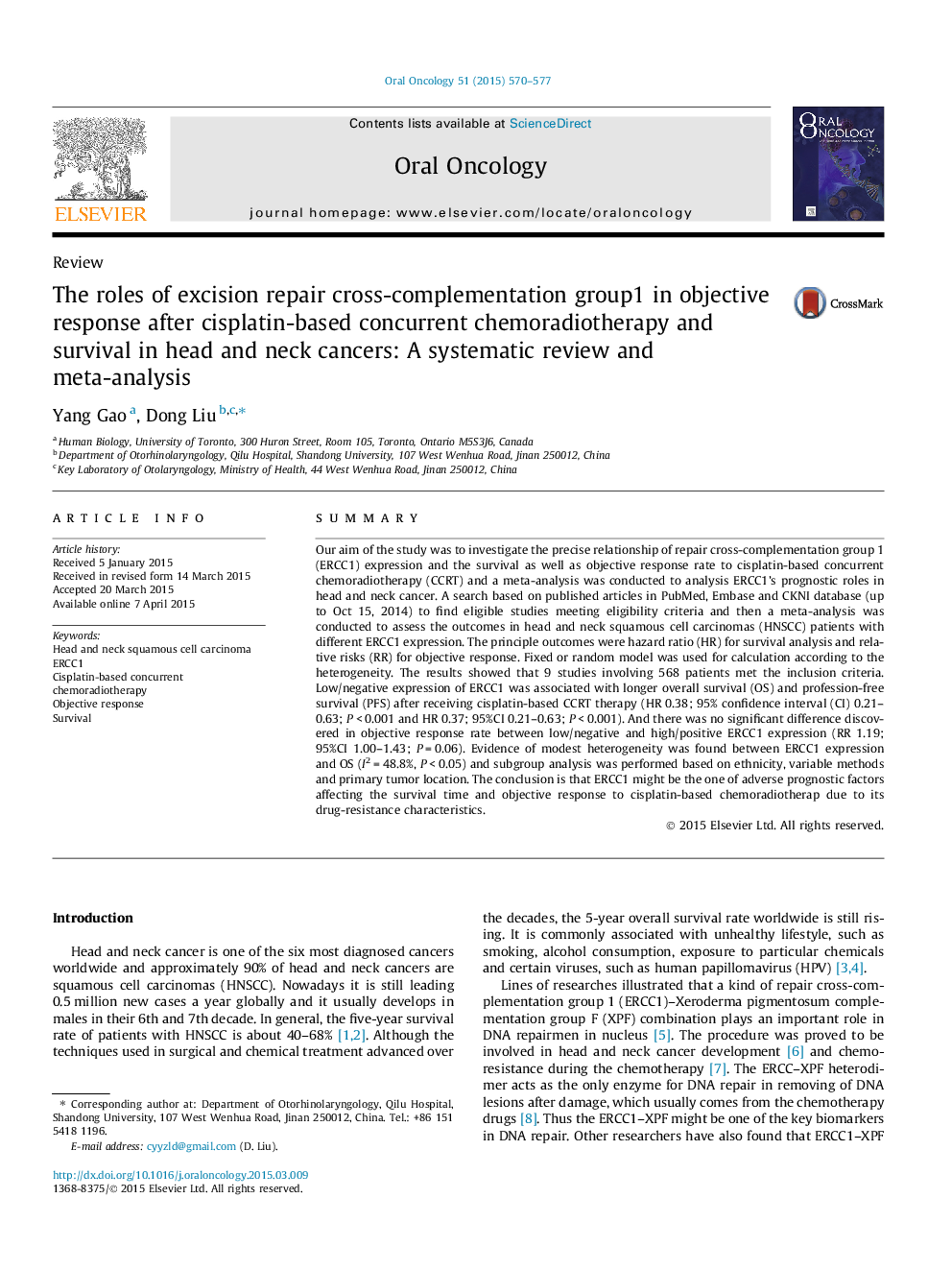| Article ID | Journal | Published Year | Pages | File Type |
|---|---|---|---|---|
| 6054835 | Oral Oncology | 2015 | 8 Pages |
Abstract
Our aim of the study was to investigate the precise relationship of repair cross-complementation group 1 (ERCC1) expression and the survival as well as objective response rate to cisplatin-based concurrent chemoradiotherapy (CCRT) and a meta-analysis was conducted to analysis ERCC1's prognostic roles in head and neck cancer. A search based on published articles in PubMed, Embase and CKNI database (up to Oct 15, 2014) to find eligible studies meeting eligibility criteria and then a meta-analysis was conducted to assess the outcomes in head and neck squamous cell carcinomas (HNSCC) patients with different ERCC1 expression. The principle outcomes were hazard ratio (HR) for survival analysis and relative risks (RR) for objective response. Fixed or random model was used for calculation according to the heterogeneity. The results showed that 9 studies involving 568 patients met the inclusion criteria. Low/negative expression of ERCC1 was associated with longer overall survival (OS) and profession-free survival (PFS) after receiving cisplatin-based CCRT therapy (HR 0.38; 95% confidence interval (CI) 0.21-0.63; PÂ <Â 0.001 and HR 0.37; 95%CI 0.21-0.63; PÂ <Â 0.001). And there was no significant difference discovered in objective response rate between low/negative and high/positive ERCC1 expression (RR 1.19; 95%CI 1.00-1.43; PÂ =Â 0.06). Evidence of modest heterogeneity was found between ERCC1 expression and OS (I2Â =Â 48.8%, PÂ <Â 0.05) and subgroup analysis was performed based on ethnicity, variable methods and primary tumor location. The conclusion is that ERCC1 might be the one of adverse prognostic factors affecting the survival time and objective response to cisplatin-based chemoradiotherap due to its drug-resistance characteristics.
Related Topics
Health Sciences
Medicine and Dentistry
Dentistry, Oral Surgery and Medicine
Authors
Yang Gao, Dong Liu,
